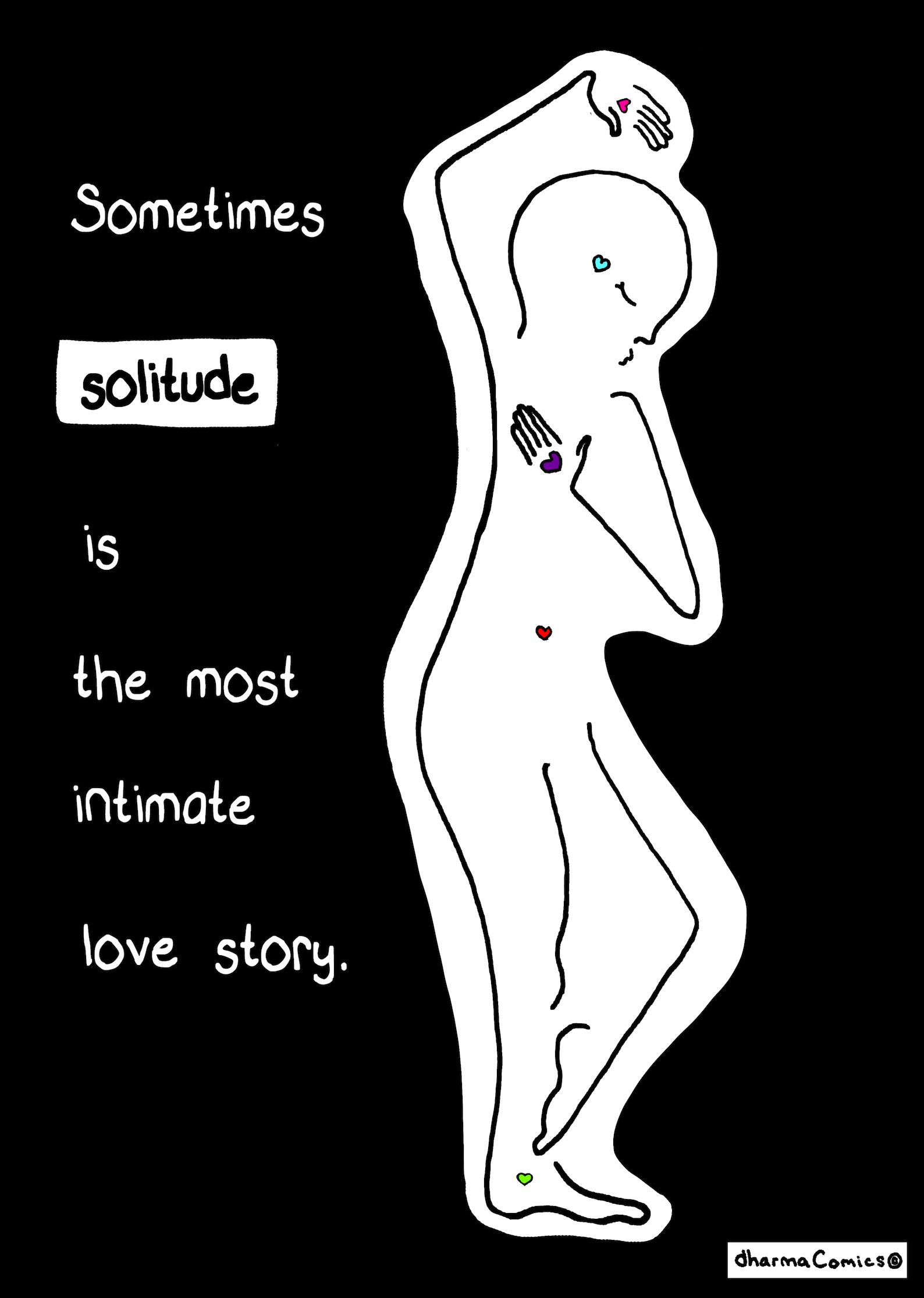The Capacity for Successful Solitude

IMAGE OF THE WEEK

The capacity to be alone is the capacity to know enough about yourself and who you are, and be comfortable enough with that. That way, when you are with another person, you’re not trying to make that person into somebody you need them to be in order to buttress a fragile sense of your own self. You can actually turn to a person and see them as another person, and have a real relationship with them.
Now, the person who can’t do that is going to be one of these people who nobody wants to be with, because when you see them coming, you know that they’re going to use you to make themselves feel less terrifyingly alone. Those people are very lonely, because they can’t form relationships. They’re using other people as spare parts.
The capacity to be in a relationship requires the capacity for a genuine solitude. One of the gifts of a successful childhood is that you develop this capacity for successful solitude. And you learn it, paradoxically, by a caretaker being with you, but able to leave you a little bit of space.
I remember walks with my grandmother to Macy’s in Brooklyn. And we were just quiet together. Every once in a while there’d be a word, but we were just side by side in our thoughts, and sharing a thought once in a while, and you knew that there was someone there protecting you as you learned to think your own thoughts. People have many different models of what that was: sitting together sewing or reading or playing or giving a child a bath and letting them have the privacy of their thoughts. These are the moments of childhood where children are not abandoned, but they learn to be alone with. And that capacity means that when they come to other relationships, they can form them successfully. If instead of that, you put them in a baby bouncer that has a slot for an iPad or an iPhone or a laptop, they’re always mirrored in some other outside thing and they’re not brought back to their own self and their own resources and their own mind and their own imagination.
There’s a wonderful idea that you have to learn that the most interesting thing in the environment is your own mind. And if you never learn that, it’s not good.
Excerpted from Sherry Turkle's blog post: Relearning how to talk in the age of Smartphone addiction
SEED QUESTIONS FOR REFLECTION: What does successful solitude mean to you? Can you share a personal experience of a time you experienced successful solitude with another person? What has helped you develop the successful solitude muscle?